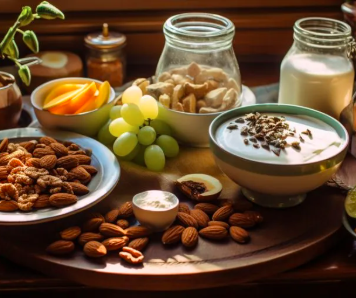Sustainable weight loss is more than a temporary shift in eating patterns. It’s a long-term lifestyle rooted in choices that nourish the body and mind. Among the most effective and friendly approaches is choosing natural foods as the foundation of your daily meals. This path not only supports your physical health but also creates a gentler, more positive relationship with food.
Natural foods—those that are minimally processed and come from the earth or animals in their whole form—carry powerful benefits for weight management. They tend to be nutrient-rich, satisfying, and lower in added sugars, unhealthy fats, and preservatives. But the value of natural foods goes beyond nutrients; it lies in the way they help you reconnect with your body’s signals, foster enjoyment in eating, and support gradual, lasting change.
A sustainable weight loss journey doesn’t demand perfection or restriction. It begins with small, thoughtful decisions—like choosing a piece of fruit instead of a packaged snack, or preparing a homemade meal rather than reaching for takeout. These seemingly simple acts become building blocks for habits that align with your health goals and lifestyle.
One of the key advantages of natural foods is their ability to keep you fuller for longer. Whole fruits, vegetables, whole grains, legumes, lean proteins, and healthy fats tend to offer a balance of fiber, protein, and essential fats. This combination naturally helps regulate hunger and energy throughout the day, making it easier to avoid overeating or unnecessary snacking.
Additionally, natural foods often come with fewer hidden calories and ingredients. When you cook with real ingredients at home—such as brown rice, leafy greens, sweet potatoes, beans, nuts, or grilled chicken—you have more control over what goes into your body. You’re more aware of portion sizes, added oils or sauces, and how the meal is prepared. This mindful involvement in your food choices fosters a sense of empowerment and connection with your well-being.
The beauty of natural foods is in their variety. You don’t need to eat bland salads or boiled vegetables every day. Roasted root vegetables, colorful stir-fries, fresh herbs, homemade dressings, baked fruits, and smoothies can all be part of a delicious, vibrant diet. When meals are enjoyable and satisfying, you’re more likely to stick with your plan for the long run.
It’s also important to note that choosing natural foods isn’t about cutting out all treats or labeling certain items as “bad.” A sustainable approach allows room for celebration, cultural dishes, and occasional indulgences. The goal is to make natural, whole foods the foundation of your eating style while still having the flexibility to enjoy your life.
Another helpful benefit of this lifestyle is the improved connection between your food and your body’s needs. When you eat foods that are fresh and full of nutrients, your body responds in kind. You may notice more stable energy, better digestion, clearer skin, and a more consistent mood. These signs of progress can be just as motivating as watching the number on the scale shift.
Over time, the habits you build through natural eating begin to support not only weight loss, but a deeper sense of health and balance. Your taste buds adjust, your cravings become less intense, and your meals become more nourishing and purposeful. You begin to choose what makes you feel good rather than what offers only momentary pleasure.
Of course, sustainable change also includes being kind to yourself through the process. There may be days when you choose convenience foods or feel too tired to cook. These moments are normal. What matters most is the bigger picture: a steady return to choices that support your well-being. A natural-food approach allows for these ups and downs because it’s not built on willpower or rigid rules—it’s grounded in care, consistency, and awareness.
Planning ahead can make it easier to stay on track with natural foods. Preparing simple meals in advance, keeping fresh produce visible, and stocking your kitchen with staples like oats, lentils, eggs, and leafy greens can create an environment that supports healthy decisions without stress.
Shopping the perimeter of the grocery store is also a helpful tip. That’s where you’ll often find fresh produce, meat, dairy, and whole grains. The middle aisles tend to carry more packaged, ultra-processed foods that can sidetrack your progress. While some packaged items are fine—like canned beans or frozen veggies—aiming to fill your cart mostly with whole items helps reinforce your goals.
Water plays an important role in this journey, too. Staying hydrated supports digestion and energy and may even help prevent unnecessary snacking. Sometimes we mistake thirst for hunger, leading to extra calories we don’t really need. Starting meals with a glass of water or keeping a reusable bottle nearby can gently encourage better hydration habits.
Lastly, community and support can make a big difference in your success. Sharing recipes, cooking with family, or following others on a similar journey can help you stay motivated and inspired. Being part of a group that values natural, wholesome foods creates a sense of belonging and makes the process more enjoyable.
Sustainable weight loss doesn’t have to feel overwhelming. By focusing on one natural food choice at a time, you begin to transform your eating pattern in a way that respects your body and your pace. Over weeks and months, these choices add up—not just to weight loss, but to improved health, confidence, and peace of mind.
When you choose natural foods, you choose simplicity, nourishment, and a path that leads you forward gently. This approach invites you to listen more closely to your body, appreciate the quality of your meals, and embrace a lifestyle that’s not just about weight, but about living well.














